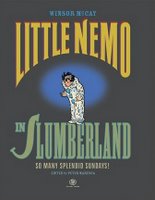Two of cinema’s die-hard champions of blockbuster entertainment have now gone on record to announce its demise. A while back, sometime between the phenomenal success of
The Lord of the Rings and the disappointing returns of
King Kong, Peter Jackson claimed to be much more interested in the future of gaming than in the future of movies; indeed, he seems to have begun the transition by taking on the next big game-to-movie project,
Halo, as executive producer. And yesterday’s
Daily Variety quotes George Lucas at the groundbreaking ceremony for the renamed School of Cinematic Arts at USC:
“We don't want to make movies. We're about to get into television. As far as Lucasfilm is concerned, we've moved away from the feature film thing because it's too expensive and it's too risky. I think the secret to the future is quantity.”
Hold on there, roll back tape. Did the man say this at
the groundbreaking of a film school? Well, yes and no. While George is nothing if not perverse, (ask anyone in rank-and-file geekdom), his choice of words bear some examination: he’s not quitting
cinema, he’s quitting
movies; specifically that, uh, “feature film thing.” The University of Southern California, for that matter, never had a “movie” department; the School of Cinematic Arts was previously known as the USC School of Cinema-Television. The operative concept here is “moving images” on an elemental level; the economic, technical and cultural specifics are transient: mass audiences lining up for tickets and filling theaters are gradually becoming obsolete. Here's Lucas musing on big budgets (something he knows a thing or two about):
“For that same $200 million, I can make 50-60 two-hour movies. That's 120 hours as opposed to two hours. In the future market, that's where it's going to land, because it's going to be all pay-per-view and downloadable.”
And then he gets to the core of his argument, the future of consumer behavior (a subject he's gotten grievously wrong in the past— but he just may be on to something here):
“I don't think anything's going to be a habit anymore. I think people are going to be drawn to a certain medium in their leisure time and they're going to do it because there is a desire to do it at that particular moment in time. Everything is going to be a matter of choice.”
So, Americans are kicking the movie habit, mostly because there are just
so many ways out there now to see and to do. Time and again, the first thing that new media rejiggers is language, even as we try to sort out our new behaviors— which I believe will eventually be called “habits.” And so we find ourselves again at a semantics crossroads: perhaps it’s time for ”film,” “cinema” and “movies” to part ways, once and for all.




